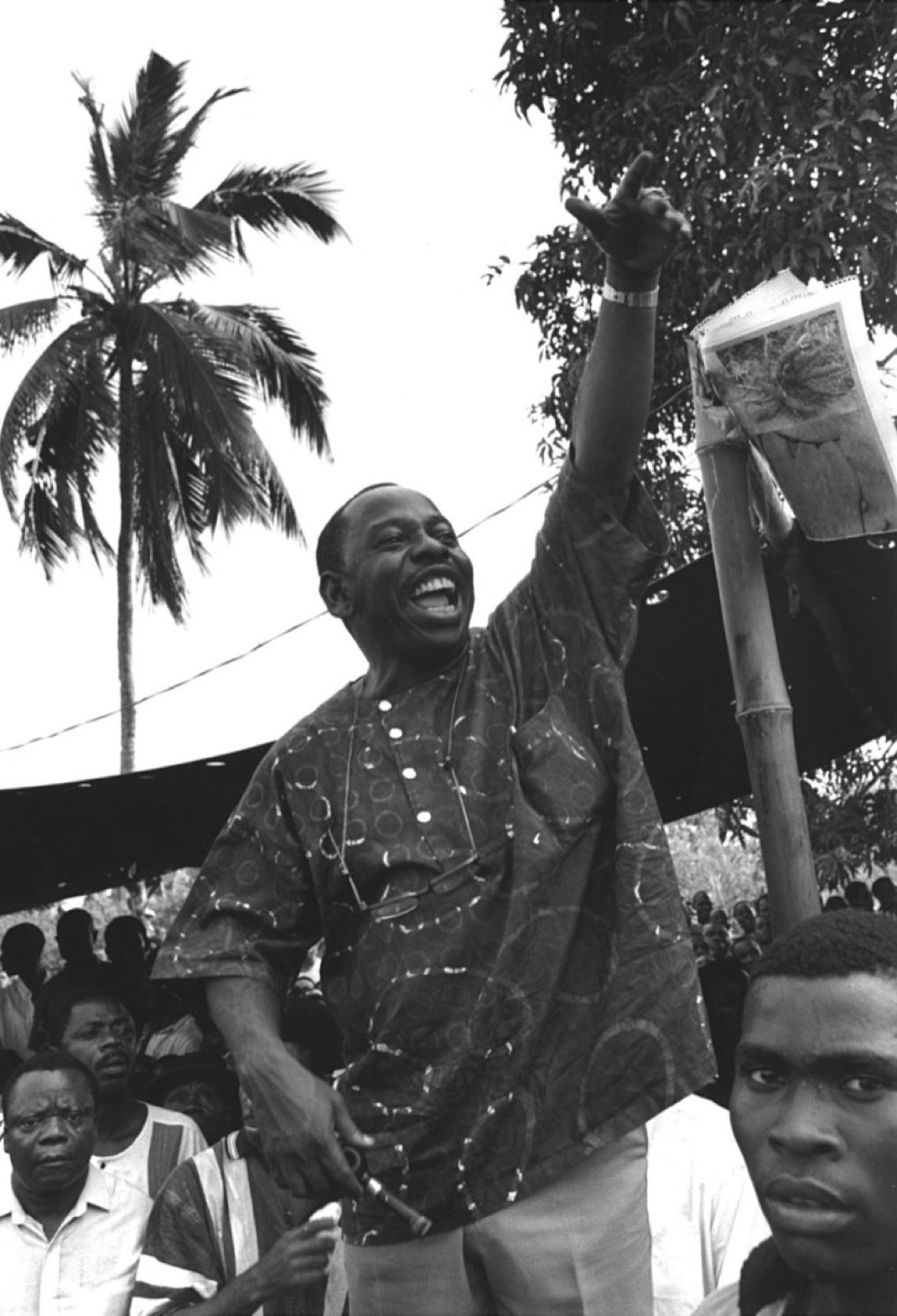Nigeria marked a significant yet controversial milestone in its history by granting a posthumous pardon to the late environmental activist Ken Saro-Wiwa and the other eight members of the Ogoni Nine, who were executed 30 years ago under the military regime of General Sani Abacha. This act, announced by President Bola Tinubu during the nation’s Democracy Day celebrations, also included the conferment of national honors on the activists, recognizing their contributions to Nigeria’s democratic and environmental justice struggles.
Background of the Ogoni Nine and Their Execution
Ken Saro-Wiwa, a renowned writer and environmental campaigner, led the Movement for the Survival of the Ogoni People (MOSOP), which protested against the environmental degradation caused by oil companies, particularly Shell, in the oil-rich Niger Delta region. The Ogoni Nine were accused of involvement in the murder of four pro-government Ogoni chiefs during an intra-communal conflict in 1994. Following a secretive military tribunal widely regarded as politically motivated, they were convicted and executed by hanging on November 10, 1995. Their deaths sparked international outrage, leading to Nigeria’s suspension from the British Commonwealth and sanctions from various Western nations.
The Presidential Pardon and National Honors
President Tinubu’s pardon was framed as an act of national reconciliation and recognition of the activists as heroes who made “remarkable contributions” to Nigeria’s democracy and environmental justice. The nine individuals—Ken Saro-Wiwa, Saturday Dobee, Nordu Eawo, Daniel Gbooko, Paul Levera, Felix Nuate, Baribor Bera, Barinem Kiobel, and John Kpuine—were awarded posthumous national honors, including the Commander of the Order of the Niger (CON) and Officer of the Order of the Niger (OON).
Tinubu emphasized that the pardon was an exercise of the prerogative of mercy and an acknowledgment of the activists’ role in shaping Nigeria’s democratic landscape. He indicated that further pardons might be granted in conjunction with the National Council of State.
Reactions: Mixed Praise and Calls for Justice
While the pardon was welcomed by some as a positive step, many activists, family members, and human rights groups have expressed that it falls short of true justice. Esther Kiobel, widow of Barinem Kiobel, one of the Ogoni Nine, expressed gratitude for the pardon but insisted that the families seek full exoneration rather than a pardon, arguing that the activists committed no crime and were victims of a gross miscarriage of justice orchestrated by the Abacha regime in collusion with Shell Oil.
Similarly, the Movement for the Survival of the Ogoni People (MOSOP), which Saro-Wiwa once led, described the pardon as a “brave decision” but criticized the implication that the activists were guilty of any crime. They maintain that no crime occurred and that what is needed is a judicial review and exoneration, not a pardon which traditionally implies guilt.
Environmental rights advocates and legal experts have echoed these sentiments, calling for a judicial panel of inquiry to investigate the unfair trial and to clear the names of the Ogoni Nine fully. They argue that a pardon does not address the root injustice of the politically motivated executions and that true justice requires acknowledgment of innocence and state accountability.
Historical and Political Significance
The pardon comes at a time when Nigeria is attempting to reconcile with its past military dictatorships and address longstanding grievances related to environmental degradation and marginalization of the Niger Delta communities. The executions of the Ogoni Nine remain a dark chapter symbolizing the brutal suppression of dissent and environmental activism under military rule.
However, the ongoing debate about the adequacy of a pardon versus exoneration highlights the complexities of transitional justice in Nigeria and the continuing struggle for recognition and reparations for victims of state oppression.
Conclusion
The posthumous pardon of Ken Saro-Wiwa and the Ogoni Nine, three decades after their execution, is a landmark gesture by the Nigerian government. It recognizes their role as environmental and democratic heroes but also opens a broader conversation about justice, accountability, and reconciliation. While the pardon is a step forward, many advocates insist that it is only the beginning of a process that must include full exoneration, legal redress, and meaningful reparations to truly honor the legacy of the Ogoni Nine and the cause they championed.

